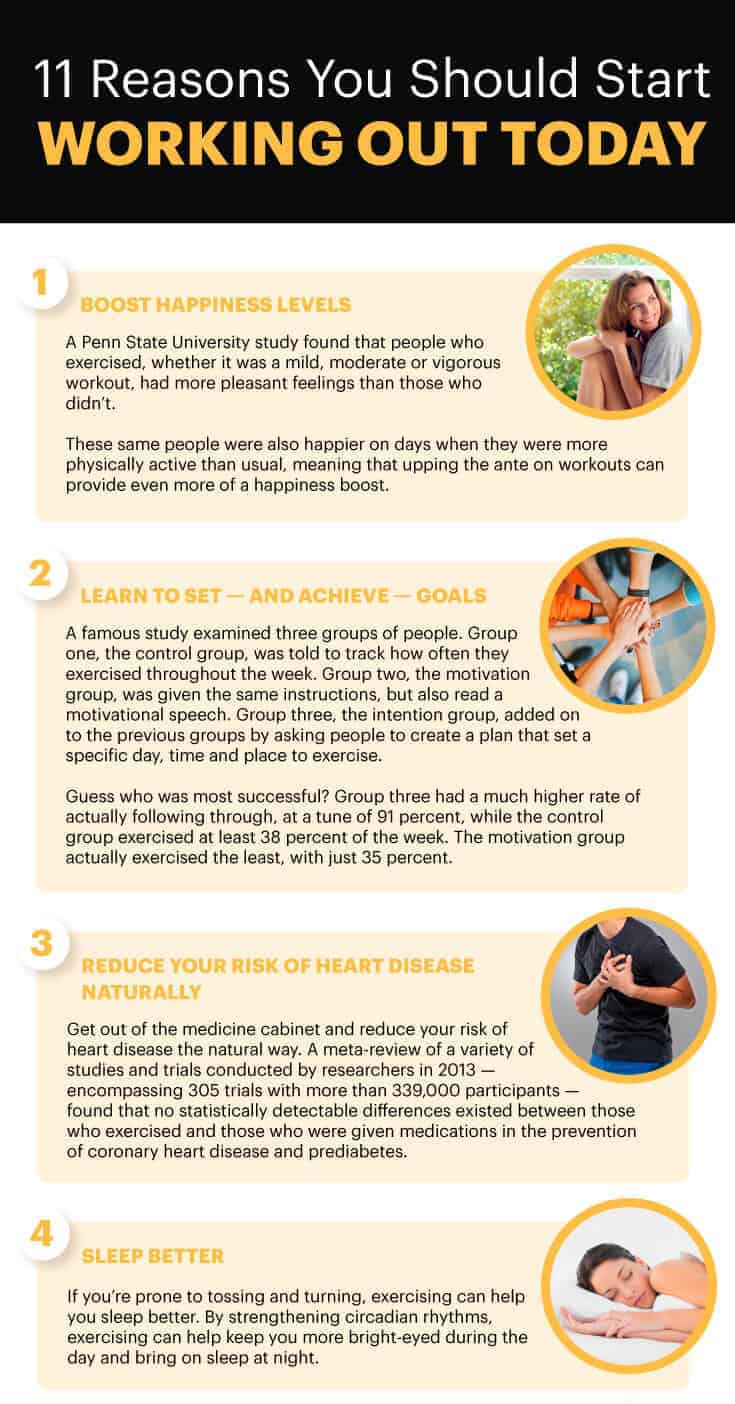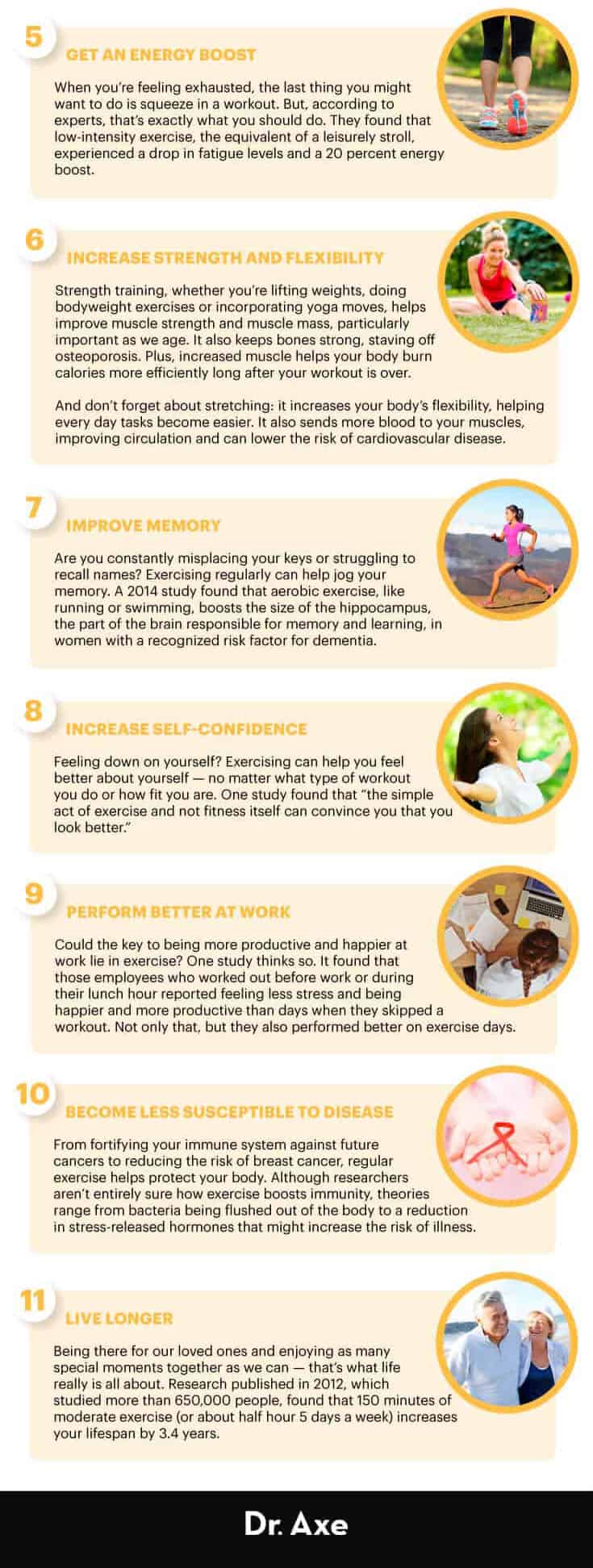This Dr. Axe content is medically reviewed or fact checked to ensure factually accurate information.
With strict editorial sourcing guidelines, we only link to academic research institutions, reputable media sites and, when research is available, medically peer-reviewed studies. Note that the numbers in parentheses (1, 2, etc.) are clickable links to these studies.
The information in our articles is NOT intended to replace a one-on-one relationship with a qualified health care professional and is not intended as medical advice.
This article is based on scientific evidence, written by experts and fact checked by our trained editorial staff. Note that the numbers in parentheses (1, 2, etc.) are clickable links to medically peer-reviewed studies.
Our team includes licensed nutritionists and dietitians, certified health education specialists, as well as certified strength and conditioning specialists, personal trainers and corrective exercise specialists. Our team aims to be not only thorough with its research, but also objective and unbiased.
The information in our articles is NOT intended to replace a one-on-one relationship with a qualified health care professional and is not intended as medical advice.
17 Benefits of Exercise for the Body, Mind and Longevity
February 11, 2025

Maybe you’ve been meaning to start working out but just haven’t found the right fitness routine or even the right exercise hack. Perhaps you’re recovering from an injury or haven’t gotten around to it. Whatever your excuse, it’s time to get your workout on because the benefits of exercise go well beyond aesthetic reasons.
That’s right. The benefits of exercise are far more than just losing weight or achieving that beach body.
Exercise benefits everything from your sleep quality to your energy levels and even your memory. From making you happier to helping you live longer, regular exercise is key to living a healthy, balanced life, and the benefits of exercise extend to things you may not have even imagined.
1. Boost happiness levels
Whether we’re fully conscious of it or not, we’re always looking for how to be happy, and exercise is one of the most obvious steps to take. In fact, it’s not a coincidence that you feel better after a good workout. It’s science.
A Penn State University study found that people who exercised, whether it was a mild, moderate or vigorous workout, had more pleasant feelings than those who didn’t.
These same people were also happier on days when they were more physically active than usual, meaning that upping the ante on workouts may provide even more of a happiness boost.
The takeaway? Working out can make you happy long term, and adding extra intensity can make you feel even better.
Another experiment used a smartphone app to have participants track their activity, location and happiness levels throughout the day. It received more than 3 million responses a year, and users were at their second-happiest post-workout.
2. Learn to set and achieve goals
Whether it’s deciding to run a 10K, increasing the amount you can deadlift or upping your bike mileage, setting and achieving fitness goals is an incredible self-confidence boost. If you find your resolutions falling to the wayside, science has uncovered the secret to success: setting clear intentions.
A 2002 study examined three groups of people. Group one, the control group, was told to track how often each person exercised throughout the week.
The second group, the motivation group, was given the same instructions, but also read a motivational speech. Group three, the intention group, added on to the previous groups by asking people to create a plan that set a specific day, time and place to exercise.
Guess who was most successful? Group three had a much higher rate of actually following through, at a tune of 91 percent, while the control group exercised at least 38 percent of the week. The motivation group actually exercised the least, with just 35 percent.
By discovering the power of goal setting by committing to reaching an exercise milestone and then working out just how you’ll achieve it, you can enjoy the benefits of exercise and the confidence that comes along with it.
3. Reduce your risk of heart disease naturally
Get out of the medicine cabinet and reduce your risk of heart disease the natural way.
A meta-review of a variety of studies and trials conducted by researchers in 2013, encompassing 305 trials with more than 339,000 participants, found that no statistically detectable differences existed between those who exercised and those who were given medications in the prevention of coronary heart disease and prediabetes.
In fact, in those patients who already had suffered a stroke, physical activity interventions were more effective than drug treatment. Work with your doctor to set up an exercise plan that works for you.
4. Sleep better
If you can’t sleep and instead are prone to tossing and turning, exercising can help you sleep better.
By strengthening circadian rhythm, exercising can help keep you more bright-eyed during the day and bring on sleep at night. It also promotes better quality sleep.
A meta-analytic review from 2015 analyzed multiple studies and found that both acute and regular exercise have beneficial effects on various sleep parameters. Acute exercise was associated with improvements in total sleep time, sleep onset latency (the time it takes to fall asleep), sleep efficiency and slow-wave sleep.
Regular exercise showed small-to-moderate beneficial effects on total sleep time, sleep efficiency, sleep onset latency and sleep quality as well.
Another study found that engaging in aerobic physical activity, combined with sleep hygiene education, effectively improved sleep quality, mood and quality of life in older adults suffering from chronic insomnia. Participants in the exercise group experienced significant improvements in sleep quality, including reduced sleep latency and increased sleep duration, compared to a control group.
5. Get an energy boost
When you’re feeling exhausted, the last thing you might want to do is squeeze in a workout, but according to experts, that’s exactly what you should do. Researchers found that low-intensity exercise, the equivalent of a leisurely stroll, led to a drop in fatigue levels and a 20 percent energy boost in study participants.
Even more exciting is that the low-intensity exercise group’s fatigue levels dropped more than the higher-intensity group, great news for those who might skip a workout because they don’t have time or energy for a more intense session. Both groups reported steadily increased energy over the span of the six-week experiment.


6. Increase strength and flexibility
If strength training and stretching aren’t a part of your fitness routine, it’s time to incorporate them. Though many adults engage in cardio activities, quite a few stay away from resistance training and building muscle, and that’s a mistake.
Strength training, whether you’re lifting weights, doing bodyweight exercises or incorporating yoga moves, helps improve muscle strength and muscle mass, particularly important as we age.
It also keeps bones strong, thus serving as a great natural treatment for osteoporosis. Plus, increased muscle helps your body burn calories more efficiently long after your workout is over, also known as the afternburn effect.
And don’t forget about stretching. It increases your body’s flexibility, helping everyday tasks become easier.
It also sends more blood to your muscles, improving circulation, and can lower the risk of cardiovascular disease. Just a few minutes a day of deep stretching can make a difference.
7. Improve memory
Are you constantly misplacing your keys or struggling to recall names? Exercising regularly can help jog your memory.
A 2014 study found that aerobic exercise, like running or swimming, can boost the size of the hippocampus, the part of the brain responsible for memory and learning, in women with a recognized risk factor for dementia. Besides looking to brain food to boost your memory and mental skills, start breaking a sweat!
8. Increase self-confidence
Feeling down on yourself? Exercising can help you feel better about yourself , no matter what type of workout you do or how fit you are.
One study found that “the simple act of exercise and not fitness itself can convince you that you look better.”
Another study examined the impact of consistent physical activity on psychological parameters in healthy adults. The researchers assessed 352 participants who engaged in regular exercise (at least two days a week for the past six months) and compared them to 350 sedentary individuals.
The findings revealed that those who exercised regularly had significantly higher levels of self-efficacy, self-esteem and body awareness compared to their sedentary counterparts. This suggests that regular physical activity can enhance self-confidence and overall psychological well-being.
With so much emphasis on our outward appearances in society today, it’s comforting to know that one of the benefits of exercise helps people feel better about themselves and how they look naturally.
9. Perform better at work
Could the key to being more productive and happier at work lie in exercise? At least one study thinks so.
It found that employees who worked out before work or during their lunch hour reported feeling less stress and being happier and more productive than on days when they skipped their workouts. Not only that, but they also performed better on exercise days.
Additionally, a study from 2004 explored the relationship between lifestyle-related health risks and work performance among 683 workers. The researchers found that higher levels of physical activity were associated with reduced decrements in the quality of work performed and overall job performance.
In addition, greater cardiorespiratory fitness was linked to reduced decrements in the quantity of work performed and a reduction in extra effort exerted to perform the work. These findings suggest that engaging in regular physical activity and maintaining good cardiorespiratory fitness can enhance various aspects of work performance.
It’s the perfect excuse for a lunchtime stroll or walking meeting.
10. Become less susceptible to disease
From fortifying your immune system against future cancers to reducing the risk of breast cancer, regular exercise helps protect your body.
Research published in 2020 looked at the impact of exercise on the immune system. The researchers concluded that regular, moderate-intensity exercise enhances immune defense by increasing the recirculation of immunoglobulins, anti-inflammatory cytokines, neutrophils and natural killer cells, thereby reducing the risk of infections.
11. Live longer
Being there for our loved ones and enjoying as many special moments together as we can are what life really is all about. Keeping your body happy and healthy to help you live a longer, fuller life is one of the biggest benefits of exercise.
Therefore, it’s great news that research published in 2012, which studied more than 650,000 people, found that 150 minutes of moderate exercise (or about half hour five days a week) can increase your life span by 3.4 years (and it supports healthspan too).
So short of moving to a blue zone, exercising for just 10 minutes a day, or 75 minutes a week, can earn you an extra 1.8 years. The findings held true even for those individuals who were overweight or obese, adding exercise helped them live longer, while being obese and inactive decreased life span by up to 7.2 years.
The benefits of adding more exercise increased and then plateaued at about 300 minutes of weekly exercise (or an hour five days a week), adding an extra 4.2 years of life.
So the next time you think you’re too busy, think about it this way: You’re shaving off years of life. Is that TV show really worth it?
12. Maintain a healthy weight
Of course, you can’t list the benefits of exercise without mentioning its effect on weight and body composition.
Research published in 2023 found that aerobic exercise, when combined with dietary interventions, can lead to significant weight loss and helps in maintaining a healthy weight. Researchers also noted that resistance training is beneficial for preserving lean muscle mass during weight loss.
The study concluded that incorporating regular physical activity is essential for effective weight loss and long-term weight maintenance.
Meanwhile, a systematic review revealed that engaging in regular physical activity is associated with significant weight loss and is crucial for maintaining weight loss over the long term. Specifically, individuals who participated in higher amounts of physical activity were more successful in sustaining their weight loss compared to those with lower activity levels.
13. Manage blood sugar
You can add blood glucose control and a lower risk for diabetes symptoms to the benefits of exercise. A meta-analysis from 2001 evaluated the impact of exercise on blood sugar management in individuals with type 2 diabetes.
The study found that exercise training reduced HbA1c levels by approximately 0.66 percentage points, indicating improved long-term blood glucose control. This reduction is significant enough to decrease the risk of diabetic complications.
14. Healthy brain aging
The benefits of exercise extend to the brain. For instance, one study investigated the effects of aerobic fitness training on brain volume in older adults.
The researchers found that participants who engaged in regular aerobic exercise experienced significant increases in brain volume, particularly in regions associated with age-related decline, such as the hippocampus and prefrontal cortex. These findings suggest that aerobic exercise can counteract brain atrophy and support cognitive health as people age.
15. Sexual health support
It turns out exercise is good for your love life too. A study titled “Exercise Improves Self-Reported Sexual Function Among Physically Active Adults” examined the relationship between cardiovascular exercise levels and sexual function in both men and women.
The researchers found that higher levels of cardiovascular exercise were inversely associated with erectile dysfunction in men and protective against female sexual dysfunction in women. Thus, the benefits of exercise include helping enhance sexual health in both genders.
16. Better skin
Believe it or not, working out also can enhance the health of your skin. While that may be surprising, science has confirmed this is yet another one of the benefits of exercise.
A 2023 study investigated the effects of resistance training on skin aging in middle-aged women. Over a 16-week intervention, participants engaged in either aerobic or resistance training.
Both groups experienced significant improvements in skin elasticity and upper dermal structure, while the resistance training group also saw enhancements in dermal thickness. These findings suggest that regular resistance exercise can rejuvenate aging skin by reducing inflammation and strengthening the skin’s structural components.
17. Pain management
While there is always a risk for injury when working out, safely working out regularly can actually help people manage pain. For example, a systematic review from 2017 found that physical activity and exercise are interventions with few adverse events that may improve pain severity and physical function, thereby enhancing quality of life.
The review did note variability in effects on psychological function and quality of life, indicating the need for further research focusing on larger participant numbers, a broader spectrum of pain severity, and extended intervention and follow-up periods, but other research has relayed similar results.
Take, for instance, a systematic review titled “The Effects of Physical Exercise on Pain Management in Patients with Osteoarthritis.” It studied various exercise interventions for osteoarthritis (OA) pain management.
The review concluded that muscle-strengthening exercises, particularly those targeting the quadriceps, were effective in reducing pain and improving function in individuals with knee OA. Additionally, the review highlighted that exercise programs incorporating both strengthening and aerobic components yielded significant improvements in pain relief and physical function.
These findings suggest that engaging in regular, targeted exercise can be a beneficial strategy for managing arthritis pain.
Frequently asked questions
Will you change anything with the exercise?
It depends on your specific fitness goals, but there are many benefits of exercise that can lead to positive change in your life. If you’re aiming for more strength, endurance or weight loss, your routine may need to be adjusted, and if you incorporate exercises that target those goals, you’ll notice both physical and mental changes.
It’s always a good idea to reassess your progress and change your exercises to continue challenging your body and to prevent plateaus in order to get the maximum benefits of exercise.
What exercises help get rid of belly fat?
A combination of cardiovascular exercises (such as running, cycling or swimming), strength training (like weight lifting) and core exercises (such as planks, leg raises and Russian twists) can help reduce overall body fat, including in the belly area. A balanced diet also plays a key role in losing belly fat.
Can you exercise every day?
Yes, you can exercise every day, but it’s important to listen to your body. While daily physical activity is beneficial, rest and recovery are also necessary, especially if you’re engaging in intense workouts.
It’s helpful to vary the intensity and type of exercise each day to avoid overtraining and to give your muscles time to recover. For example, you might alternate between cardio, strength training, and rest or lower-intensity activities.



